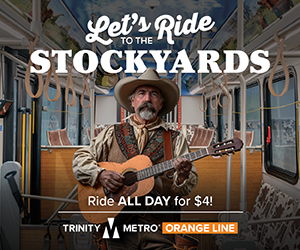As a mechanic at Molson Coors, John knows his job is dangerous. For the past nine years, the 38-year-old Kentucky native has worked in utilities for the brewing giant in South Fort Worth, supplying steam, ammonia, and glycol for beer production and collecting and distributing CO2 for brewing and canning. In his department, workers are hazmat trained, and they undergo physicals, testing, and retraining every year. The hazards of his job are on his mind every day.
“If I screw up when I’m turning a valve, if it breaks off, I could die, and a whole bunch of other people could die,” he said.
When he first joined the company, John, who is requesting anonymity, said people were in awe when he told them where he worked. He said Molson Coors was considered a great employer in those days but that things have changed since then. Now, he said, his department is understaffed, leaving him on shift longer to compensate.
“I’ve worked every Saturday for the last six months because there’s just not enough people,” he said.
Every day, he would wake up at 5 a.m., arrive at the Molson Coors plant by 6, and take some time to chat with the midnight-shift workers before clocking in. That routine changed February 17, when his branch of the National Brotherhood of Teamsters union –– Local 997 –– picked up signs and took to the streets in a strike. Now, on behalf of all 420 union members at Molson Coors, John and his fellow strikers are demanding better wages and benefits and an end to alleged unfair labor practices (ULP).
The strike comes in tandem with 5,000 Teamsters at Anheuser-Busch facilities across the United States approaching their own deadline.
There have been dozens of similar strikes across the country. Flight attendants, transit engineers in New Jersey, home-care nurses in Oregon, and transportation Teamsters in Illinois are also fighting for better conditions and pay. The Cornell Labor Action Tracker, which logs labor strikes and protests, says that since last February 459 strikes have taken place in the United States. Eighteen of them have been in Texas.
Local 997 Teamsters make, package, and warehouse beverages and beers, including Coors Light, Miller High Life, Yuengling, Pabst, and Topo Chico.
Energy the first week of the march was high, with strikers carrying signs reading, “It’s our time” (a play on the Miller company slogan) and “Honk for beer.”
That same week, the Teamsters issued a statement accusing Molson Coors of allegedly unfair bargaining. They also announced that they had filed multiple ULP charges with the National Labor Relations Board against the brewing giant.
“Molson Coors presented insulting and regressive contract proposals, including offering less than a $1 per hour wage increase for the majority of Teamsters members,” the union said. “Local 997 is seeking pay raises that reflect the impact of inflation over the term of the expired contract and the elimination of two-tiered health care and retirement benefits.”
For John, the first day of the strike felt really good but also odd.
“It’s just a little strange to be on the outside looking in,” he said. “So many years, you’re on the inside of the gate looking out.”
Also among the picketers was Rick Miedema, Local 997’s secretary-treasurer.
“We had roughly 200 people out on the picket [on Day 1] … and [they were] very amped up,” he said.
Miedema said Molson Coors employees endure immense challenges, with some workers clocking in for 12- to 16-hour workdays –– sometimes seven days a week. “A lot of employees, they’re out there more than they’re with their family.”
Miedema said that since the factory is not air-conditioned, they also have to contend with intense heat in summer. “This last summer was probably the most brutal summer that we’ve had.”
Line mechanic Jeff Pruitt, who has worked at Molson Coors for almost eight years, feels the heat is incredibly intense.
“In the summertime, it gets really rough in there,” he said. “It’s extremely hot, and it wouldn’t be so bad if the air wasn’t so stagnant. There’s no ventilation in there.”
He said heatstroke is not unheard of at the facility.
“We got quite a few people that go down from it being overheated and have to go to the hospital,” he said.
In October, data from the National Labor Relations Board showed ULP charge filings increased by 10% from the previous year –– the highest number of cases filed since 2016, the board said.
Miedema has noticed the strike trend and said he understands why unions are so active. “The fire is in the labor movement right now. … People are tired of working for less and less benefits. People want their fair share of the profits that the organizations make.”
In a public statement earlier this month, Molson Coors announced that in 2023, they achieved their highest reported top- and bottom-line figures in company history. The yearly salary of Molson Coors President and CEO Gavin Hattersley is just over $1 million, based on data by the AFL-CIO (American Federation of Labor & Congress of Industrial Organizations). In 2022, he earned over $9 million in total compensation (which includes stock values and other compensation on top of the annual salary). Molson Coors disclosed that Hattersley’s pay was 115 times the median employee’s pay for that year, the labor policy group said.
Molson Coors did not respond to a request for comment.
Before the strike, John said he could feel the tension when he would walk into work. Contract negotiations between the union and Molson Coors weren’t going well, and he felt like people were “walking on eggshells” and being short with one another. The energy was also different from previous contract negotiations –– this time, he said, he could tell it wouldn’t just be talk but action. A strike was on the horizon.
“This is my third contract, and, I don’t know, this one felt different,” he said. “It felt like, ‘We’re gonna do it.’ ”
Pruitt, a member of Local 997’s contract negotiations committee, said talks started poorly, with Molson Coors’ HR director allegedly presenting an ultimatum: Either the workers finish negotiating by the time the old contract expired, or Molson Coors would no longer pay committee members for their time.
“It’s been very difficult,” Pruitt said. “As soon as we got into the economics, they came after our health insurance.”
He said Molson Coors wanted to move union members onto a catastrophic health plan — “catastrophic” is a type of Affordable Care Act plan with low monthly premiums but high deductibles. He said it took weeks for the union to fight off that change. Then federal mediation got involved. Still, Pruitt said, nothing improved.
Molson Coors did not “even want to work with mediation in place,” he said. “They just presented us with their best and final offer, and that was the best that they could do.”
When the union voted to strike, John said it was like the pressure was finally released. The idea was both scary and exciting –– but mostly scary.
“You’ve got car payments and mortgage payments, and you don’t know how long this is gonna go, and you don’t know if you’re gonna be replaced,” John said.
With bills to pay and a family to support, he said his financial obligations were the first thing he thought about when he woke up and the last thing he thought about when he went to bed. Then, on February 8, the National Brotherhood of Teamsters announced they would increase strike benefits for Local 997 members to $1,000 a week. John said that coverage has made a meaningful difference for him and his fellow strikers.
“If it wasn’t for that … probably most people wouldn’t be able to make it,” he said.
Pruitt said he’s proud of his co-workers for striking. To him, this isn’t just about brewery workers but all workers. “We are not out there for just ourselves. … We’re also out there for everybody to take a stand, if you’re having problems in your workplace, to stand together and take action.”
Miedema said Local 997 members will “hold the line as long as they need to” to reach a contract agreement.
John’s message to Molson Coors is simple –– take care of the workers who take care of the business.
For everyone else, he has a different sentiment.
“Sorry about the traffic on 35,” he said. “We really don’t want to screw anybody’s day up. … We’re trying to give ourselves a better life for our families and better lives for young kids who are starting out working. That’s what we’re fighting for.”












